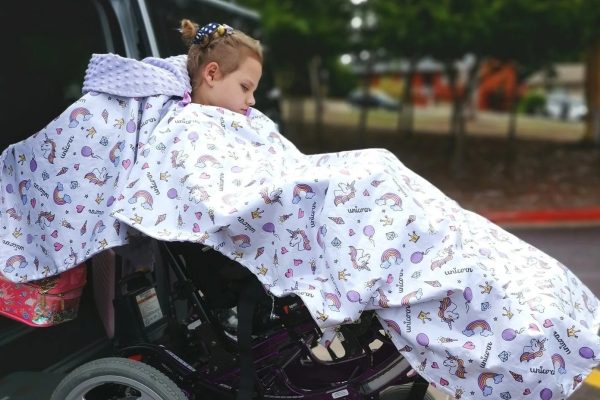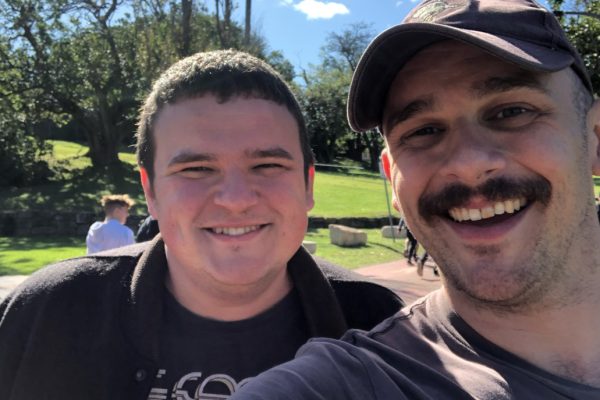
Extreme adventures = maximum fun
By Nicole Davis
Close your eyes mum and dad! Extreme sports and adrenaline pumping activities don’t have to be the sole domain of the able- bodied. If your little or not-so-little dare-devil has energy to burn and then some, why not check out some of these ideas?
WCMX & ADAPTIVE SKATING
Do you have someone who’d love to shred it up on the ramps? In the words of Aaron ‘Wheelz’ Fotheringham of Nitro Circus fame “when life gives you a wheelchair find a skatepark”.
WCMX stands for Wheelchair Motor-Cross. Despite the name, there are no motors involved, the naming is similar to BMX (Bike-Motor-Cross). WCMX riders use specialised wheelchairs (WCMX wheelchairs) in skateparks in place of a skateboard, scooter or bike to perform tricks and ride ramps.
Adaptive skating is using a skateboard in a way that differs from standard skateboarding. Some examples include:
– Sitting on a skateboard and using the hands to push,
– Using crutches to push and help maintain balance, or
– Using a support/white cane to guide the skater if they are visually impaired
(This list isn’t exhaustive, there are many forms of adaptive skating, new methods are being created every day!)
Although new, the concept of WCMX and adaptive skating as a form
of occupational therapy continues to be recognised by therapists and
parents as a revolutionary new method of boosting your child’s confidence,
independence, motor skills and self-worth.
The activities provide transferrable life skills such as persistence and goal setting; advanced mobility skills that enable your child to conquer access barriers encountered in daily life; social connectivity in the form of a supportive network of like-minded peers and the ability to shift perceptions of disability in society, through demonstrating that people with disabilities can achieve whatever they want with persistence and the right adaptation of the task.
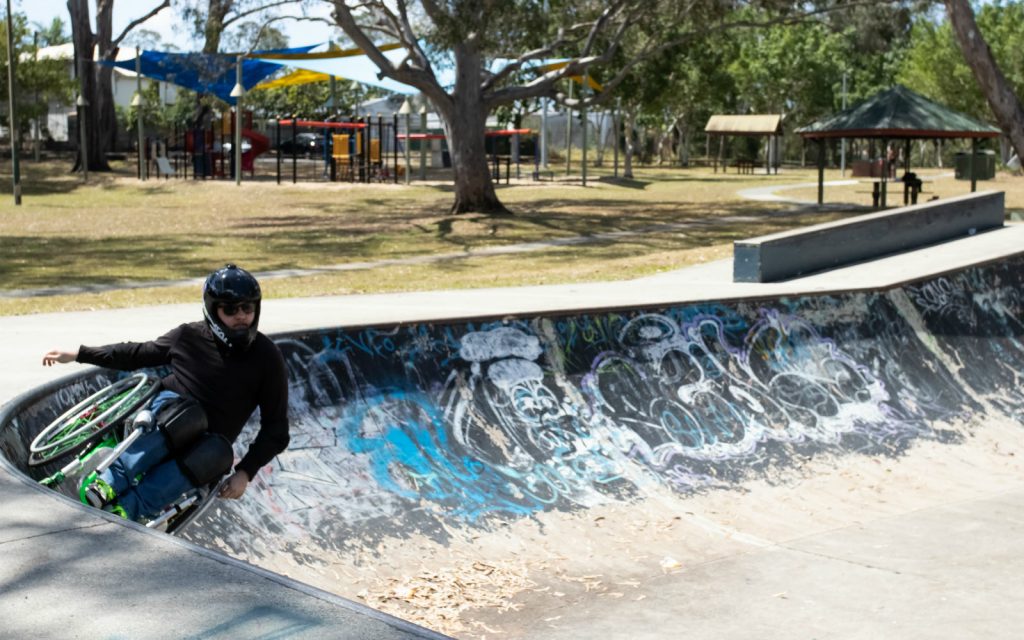
WCMX and adaptive skating are also incredible tools for changing society’s perception of people with disabilities. When you see a wheelchair backflip, you don’t see the disability, or perceived limitations that person may have. You see them for the incredible athlete they are, the determination and drive they have to get to where they are. WCMX and Adaptive skating show that wheelchairs, crutches and other mobility devices can be more than a medical device, they can be used in alternative ways to perform cool tricks and stunts. These sports show that disability can’t hold you back once you find the right way to adapt the activity to suit your needs.
Timothy Lachlan, third-year Occupational Therapy Student and Founder of WCMX & Adaptive Skate Australia began using a wheelchair at 11 years old due to a fatigue disorder. Tim told us, “I had no wheelchair skills when I started out, I was heavily reliant on wheelchair access. That all changed after I was inspired by a video of Aaron ‘Wheelz’ Fotheringham’s wheelchair backflip. I begged my parents to take me to the skatepark, I fell in love with the sport and the skills I quickly picked up.
“Within 6 months, I went from being unable to hold a wheelie to being able
to go up and down stairs and drop in on 6ft ramps. This sport has changed
my life, allowed me to travel the world and gift kids and adults the freedom to
go anywhere and do anything thanks to the advanced mobility skills that are
embedded in the sport.”
IS IT DANGEROUS?
Like all sports, there is some risk, this risk is greatly reduced when riders wear appropriate safety gear such as helmets, elbow and knee pads; in addition to performing tricks within their skill range (no backflips on your first day!).
HOW TO GET INTO WCMX AND/OR ADAPTIVE SKATING
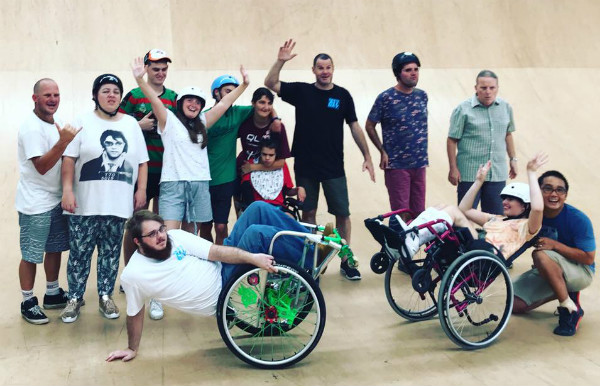
Riders can use their daily wheelchairs to skate; however, if you are serious
about the sport, it is advisable to invest in a WCMX wheelchair, so you
don’t damage your daily chair and get stuck waiting for repairs. WCMX
wheelchairs can be funded through the NDIS as they contribute to community
participation.
To get into adaptive skating, it is recommended to purchase a good quality beginner’s skateboard from a skate shop, as cheap boards from department stores have poor quality bearings and wheels which can increase the risk of injury.
Where to go to find out more:
WCMX & Adaptive Skate Australia: Email: [email protected]
FB: aussiewcmx | Insta: wcmxaustralia
Skate & Relate (Skate and Relate are also NDIS providers): www.skateandrelate.com.au
FB: skateandrelate | Insta: skateandrelate
WATER SKIING
Over the years, water skiing has been adapted so that physically challenged athletes can also participate; the first disabled world water ski tournament was held in 1987 in Western Australia, and the West Australian Disabled Water Ski Club (formerly known as the Challenge Water Ski Club the umbrella organisation for water skiers with disabilities) has been in existence since 1988.
The club’s doors are open to people with disabilities as well as the able-bodied and everything that someone would require to try out the sport is provided. The club is used mainly as a social and recreational venue but they also hold tournaments with events including slalom, tricks and jumping for blind or partially blind athletes, multiplegics, amputees and athletes with various disabilities in the legs or arms.
Over on the East coast, the NSW Waterski Federation Disabled Division is a water ski program open to all ages with various physical disabilities or vision impairment. Their program operates between October to April and they try to hold six open ski days during the water ski season where people with disabilities can ‘Come n Try’ or develop their water-skiing skills. A pool of modified equipment is available for use.
For more info visit www.disabledwaterskinsw.com and www.waterskiwa.com.au/disabled
IFLY INDOOR SKYDIVING
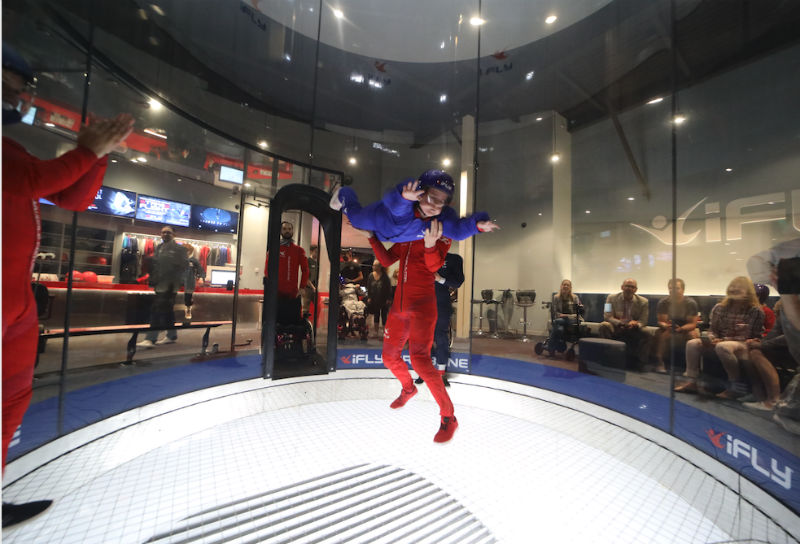

iFly Indoor Skydiving prides itself on offering a facility and experience that is accessible and inclusive for people of all abilities. With locations in Sydney, Brisbane and Gold Coast, the state-of-the-art wind tunnel provides a fully controlled, ultra-safe environment giving truly anyone the opportunity to fly. iFly have flown wheelchair users, people with low vision, hearing loss, paraplegia or amputees, as well as people living with autism, cerebral palsy and more. Each flyer is helped by specially trained flight instructors with appropriate accommodations based on their individual challenges.
The all-inclusive experience is open to all ages 3 – 103 and provides all the fun of skydiving without the need to jump out of a plane! All locations have lift access for wheelchair users, as well as restrooms and entrances that are designed to be wheelchair and pram accessible. Even service animals are welcome at the iFly locations. Although your treasured pet won’t be able to fly(!!) – the 360-degree glass tunnel means that they can watch their companion during the whole experience.
SOME OF THE BENEFITS OF INDOOR SKYDIVING INCLUDE:
Hand-eye coordination/proprioception – the safe wind tunnel is a perfect way to learn body positioning (like the family-fun game, Twister!), and the experience stimulates the senses and brain function.
Builds patience and confidence – it may look easy, but it takes effort and time to learn how to hover and then fly around the tunnel like a bird.
Leave Fortnite and the screens behind – what better way to encourage time away from screens than with the promise of flying?
More info at www.downunder.iflyworld.com
TREE TOPS CRAZY RIDERS
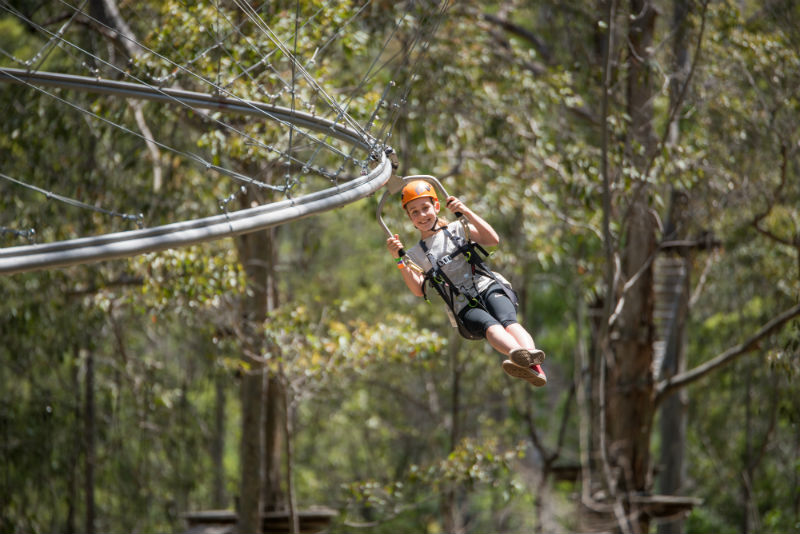

Tree Tops adventure parks offer high energy (high, geddit!), extreme amounts of fun amongst the tree-tops. Not all of the activities they offer are fully inclusive but if you have an older child or young adult with a head for heights and speed, they might want to check out the wheelchair accessible Crazy Rider experience available in their Central Coast location. Billed as the fun-filled love child of a rollercoaster and a flying fox, riders experience the wow factor as they swoop, twist, turn and zig zag through the trees.
For more info take a look at www.treetops.com.au/adventures/treetop-crazy-rider
DISABLED SURFERS BEACH DAYS
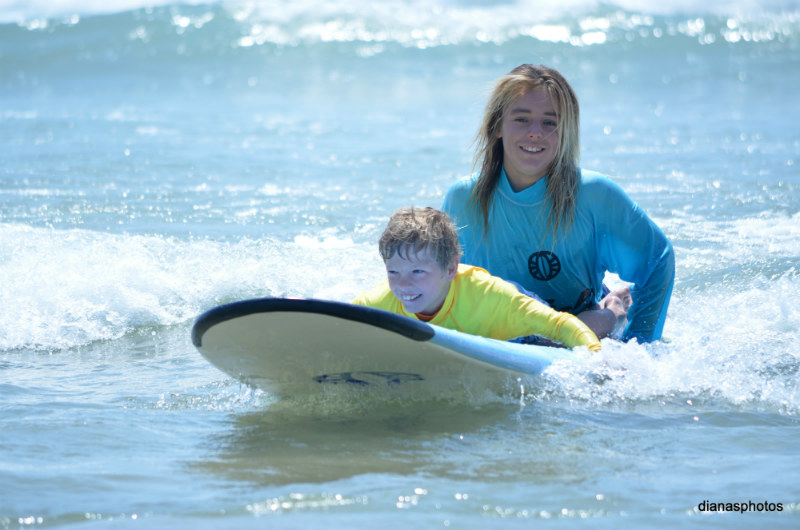

This is such a wonderful organisation run solely by volunteers. The Disabled Surfers Association of Australia hold numerous beach days all through the summer across Australia’s coasts allowing children and adults with disabilities the rare chance to catch a wave. Their mission is to put ‘Smiles on Dials’ by taking disabled participants of all ages and all disabilities surfing in a fun, friendly and safe environment. There’s no pressure to win gold, it’s all about having fun and making new friends in your local community. Make sure you visit the Disabled Surfer’s website for the latest on all the planned days around Australia.
For more information visit www.disabledsurfers.org
BACKYARD FUN
How about taking it to the extremes in your own backyard?
When Funky Monkey Bars started making monkey bars for families’ backyards in 2011, schools and councils were taking them out for fear of kids falling.
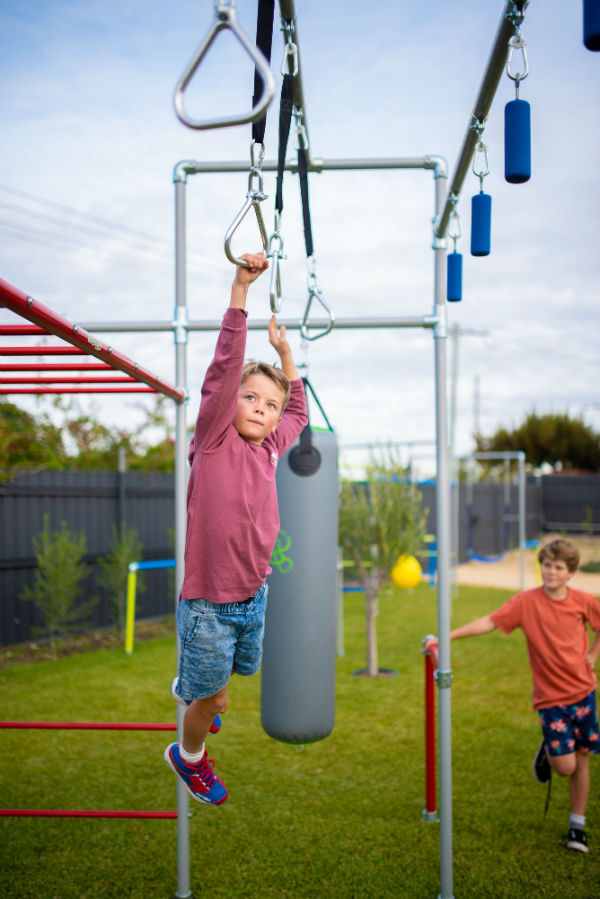

Leap forward nearly 10 years and Funky Monkey Bars now has 22 frames in response to a parent and child led demand for play that challenges kids to take calculated risks on equipment that can be customised to each child’s capability.
Every kid now considers themselves a Ninja Warrior in training and Funky Monkey Bars latest backyard frame, The Combat Ninja, caters to this latest craze for fitness that’s encouraging a digital generation of kids to get outside and play.
The Combat Ninja has monkey bars that climb to three metres high, from which kids can then clamber down a long Jungle Rope or slide the 3 metre Fireman’s Pole. Ninja handles and grips challenge the kids to swing like monkeys – building strength and persistence with huge boosts to their self-esteem when they conquer the frame.
Learn more at www.funkymonkeybars.com
WINTER SPORTS
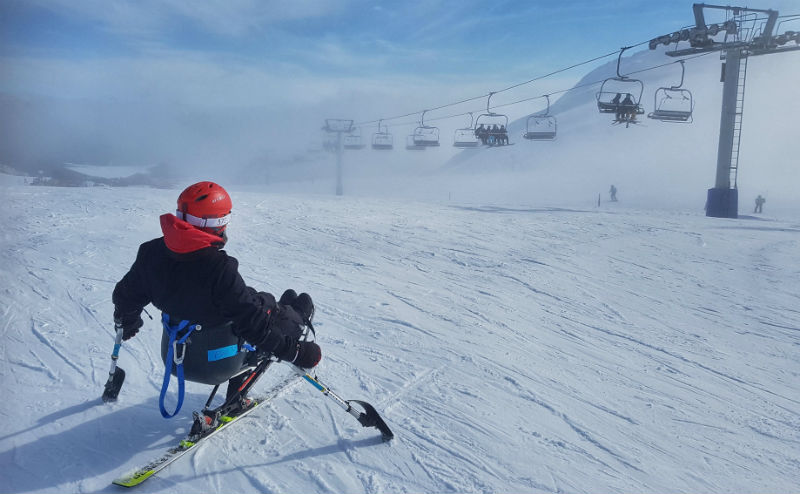

Ok, we know it’s the wrong season right now, but adrenalin junkies need to have fun all year round, right? Disabled Winter Sport Australia (DWA) offer one of the most advanced adaptive skier programs in the world with both private lessons and ski camps on offer at various Australian resorts like Perisher, Falls Creek, Thredbo and more. Membership of DWA is essential to use their services and members range from recreational skiers all the way through to Australia’s Winter Paralympians. Adaptive stand-up skiing, sit-skiing, adaptive snow-boarding and more is available through their programs.
www.disabledwintersport.com.au to learn more about how to get involved.




